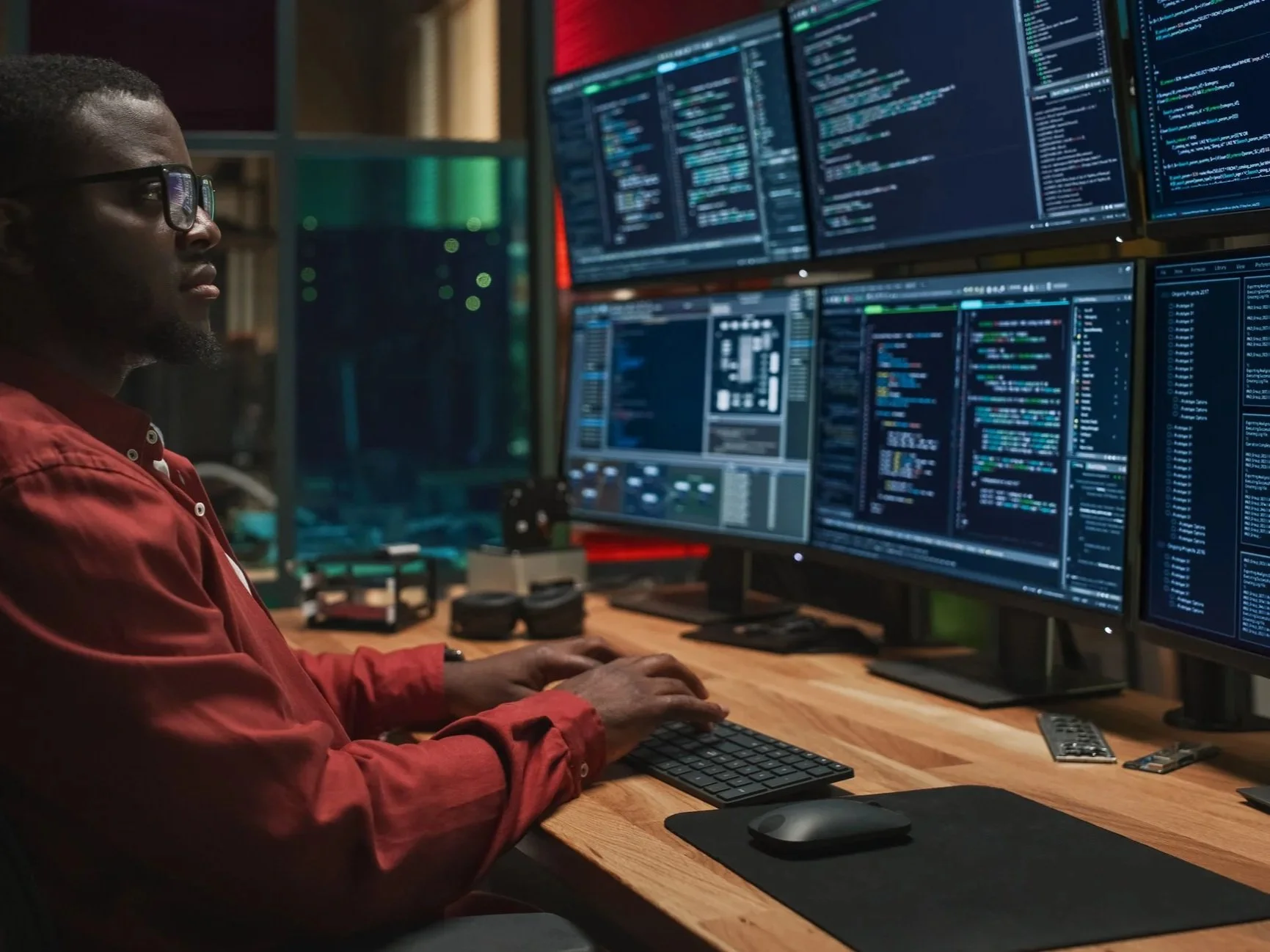5 Ways Tech is Driving Workplace Changes in 2025
Dr. Marcia F. Robinson is a senior certified HR professional, diversity strategist, and curator of TheHBCUCareerCenter.com job board. She advises organizations on building inclusive talent pipelines and improving diversity recruiting outcomes.
The way things are in a professional setting doesn’t exactly mirror the real world, but it certainly paints an apt picture about where people’s heads are and how they are thinking. When a paradigm shifts inside the workplace, one can rest assured that it’s probably shifting everywhere else too. In some cases, it may have already shifted. I wrote this in 2019 and I thought it could use a refresh since these past few years has really accelerated changes to the actual way people work.
Here are 5 ways tech is changing how we work today.
Knowledge Work Automation Grows Up
When I wrote this article first in 2019, knowledge work automation (KWA) still felt experimental—like a promising but awkward intern. Fast forward and today, it’s running meetings, prioritizing tasks, summarizing transcripts, writing first drafts, and delivering real-time language translation. The machines got smarter, but so did the use cases. Now AI is embedded in email tools, hiring platforms, and project management software. But as the technology gets slicker, it also gets riskier—especially when used without oversight. Alas, we still haven’t solved for bias, overreliance, or the very human desire to “delegate thinking” to the AI. The question for 2025 isn’t can we automate this—but if/what/why/how should we?
Retail as Training Ground? Not Anymore
Retail was once the launchpad for millions entering the workforce. On-the-job-learning was huge in retail where everyone, no matter what you studied or did before, could pick up a few people skills. As a new immigrant, decades ago, I had my fair share of retail jobs. Kids had summer jobs in retail everywhere. Those days are shrinking fast. We now live in an age of cashierless checkouts, smart shelves, and AI-based inventory and staffing systems. In the first five months of 2025, U.S. retailers eliminated close to 76,000 jobs, an increase of 274% from the same period in 2024 (Challenger, Gray and Christmas, 2025). Many of those jobs will never return. Online shopping—once the disruptor—is now the norm. Automation didn’t just change how we buy things; it changed where and how people build their skills. In 2025, young workers will need new kinds of early career scaffolding—and that’s a problem we haven’t solved yet.
The Customer Still Isn’t Always Right
Five years ago, we watched platforms like Facebook, Reddit, and Twitter wrestle with the cost of “free speech” and the backlash of unchecked customer behavior. Today, many more companies have realized that not every customer is worth keeping. Businesses are getting clearer about the boundaries of brand values, community standards, and digital safety. Imagine, content moderation is now a service and a new source of entry level jobs? Maybe. DEI-focused policies are no longer optional window dressing—it’s baked into how companies onboard users, moderate interactions, and manage risk. Job seekers know more and are not afraid to say what they value and how they want to work. The internet didn’t break society—it just illuminated all of our habits, good, bad and indifferent. The companies that thrive in 2025 are the ones that stop pretending being neutral is a brand strategy.
Real-Time AI Feedback for Everyone
Whether you’re presenting to your team or preparing for a job interview, chances are your device is watching—and, if you know how to use it, coaching. Tools like real-time voice tone analysis, video feedback for communication style, and AI-assisted performance review drafting are all part of the modern workplace. Some see this as intrusive; others see it as empowering.
Either way, it’s here.
The upside? Employees can get personalized growth insights they never had access to before. The downside? Surveillance and coaching can look a little too similar. Expect privacy to become a new workplace and performance issue and tons of lawsuits pending about what employers can and cannot do with employee data.
Digital Twin Employees & The Rise of Simulated Workspaces
What was once only in the realm of manufacturing and logistics—creating a “digital twin” of a machine or process—is now happening at the individual level. In some industries, employees now have digital replicas of their workflow used for simulation, prediction, and optimization. Digital twins allow for stress-testing team dynamics, modeling how a department would respond to new leadership, or even simulating the outcomes of different DEI strategies.
If you’re curious about this topic, here’s a great article from Deloitte.
It’s futuristic, it’s weird’ish, and it’s very 2025.
Tech isn’t just changing the tools we use—it’s reshaping the values behind the work. It’s changing how we acquire new skills and build scaffolding around our careers. In 2025, companies aren’t just optimizing for speed and scale—they’re rethinking things like trust, identity, and agency in a world where “work” can be simulated, watched, coached, and replaced.
We’re not just living through a shift. As professionals, we are helping to shape and define it.

